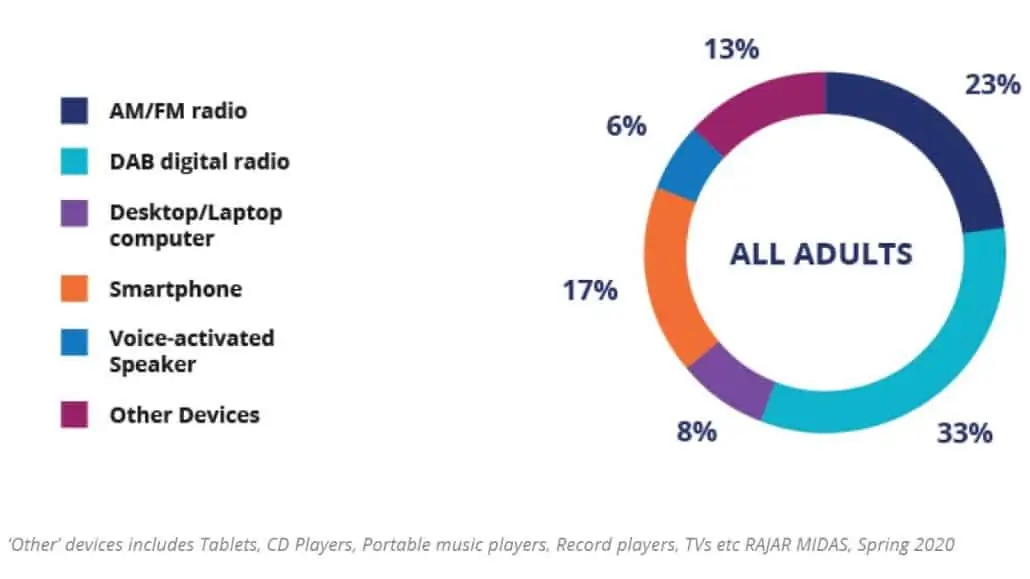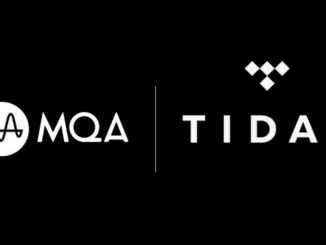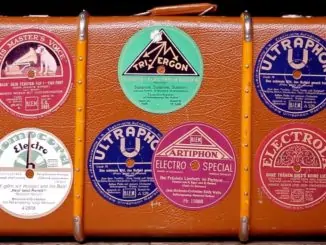
Smart Speakers may be forced to stream UK radio according to a recent report by the UK’s Department for Digital, Culture, Media & Sport (DCMS). The report entitled Digital Radio and Audio Review concluded that new rules are needed to protect British radio output on smart speakers. It found that smart speakers such as Amazon Echo and Google Home are owned or accessed by a third of all UK adults and now play a central role in many of our lives – despite only being available for around five years.
The report recommends new measures to protect UK radio stations’ accessibility so that their content is carried on platforms via connected audio devices such as smart speakers and car ‘infotainment’ systems. This will mean they can continue to reach audiences as radio is increasingly listened to via tech platforms rather than traditional radio sets.
Other recommendations include that there should be no mandated switch-off of analogue radio until at least 2030 – meaning that FM radio broadcasts can continue for at least another decade so the elderly, vulnerable and people in remote communities can access essential news and entertainment.
The UK Government said it will consider the review’s recommendations as it prepares a Broadcasting White Paper and develops a new pro-competition regime for digital markets.
Radio listening habits have changed markedly over the past ten years, with more listener choice than ever before thanks to the increasing availability of on-demand audio and the development of DAB digital radio. There are now more than 570 stations available on DAB across the UK, in addition to thousands of online stations and more than 300 stations on analogue. Around 60% of all radio listening is now via DAB or another digital platform, and the review concludes that DAB will underpin listening well into the 2030s and beyond. New small scale DAB networks are coming on air giving more and more small local stations the ability to broadcast digitally.
The review found that the ability of the UK radio industry to thrive in the long term is increasingly dependent on listeners having free access to the hundreds of different UK radio stations on connected audio devices. 64% of audio consumed on a smart speaker is live radio and the review predicts that live radio will still account for more than 50% of UK audio listening in the mid-2030s.
Amazon, Google and Apple currently provide more than 95% of voice-activated smart speakers and the review notes there is nothing within the current regulations to prevent tech platforms from being able to limit or restrict access to UK radio services or to charge stations for carriage.
Other research undertaken for the review found analogue radio listening will account for just 12-14% of all radio listening by 2030, but FM in particular remains highly valued by many listeners, especially those who are older or more vulnerable, drive older cars or live in areas with limited DAB coverage.
The review recommends there should be no formal switch-off of FM services before 2030. AM services, accounting for less than 3% of all listening, should develop a plan to retire national medium wave services, given the cost of running duplicate networks.
Other recommendations from the review include:
- The government moving forward with its plans for deregulation of commercial radio services to reduce burdens on the sector from outdated regulation;
- Further measures to support and develop the audio sector, including making it more diverse and representative of the UK;
- New measures to support national commercial AM licensees who want to retire medium wave services;
- And further work relating to other distribution channels for radio content, including mobile and to increase the rollout of DAB+ to offer listeners better quality and more services.
The Digital and Audio Review (116pp) can be downloaded here.




